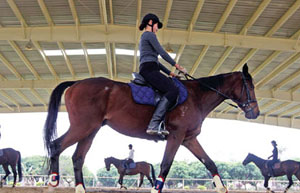Land use policy shift
Updated: 2011-12-29 07:58
(China Daily)
|
|||||||||
Premier Wen Jiabao heralded a major adjustment in land use policy in rural areas in the coming year at the central government's annual conference on rural work.
He said farmers' land property rights can no longer be sacrificed to reduce the costs of urbanization and industrialization, given the country's much higher level of economic development.
Wen said that farmers enjoy the legal rights of land contracts, land use and collective income distribution as basic protections, no matter if they have moved into the cities or stayed in the countryside, and no one has the power to deprive villagers of these rights.
This will undoubtedly underline the principles for the expected amendment to the Land Administration Law next year.
Wen also emphasized that it is not just necessary, but also feasible, to dramatically increase the share of the gains from land sales that goes to farmers.
Needless to say, the unfair distribution of proceeds from land sales has become a major source of social unrest in rural areas. Villagers rely on land to make a decent living, so it is understandable that they will become desperate if they do not get their due share of the proceeds from land sales.
Yet according to experts, rural residents receive on average only about 10 percent or less of the proceeds from land sales, the rest goes to governments at various levels.
The change in policy will predictably meet resistance from local governments, whose revenue from land sales will shrink, but it is a must if the central government is to effectively realize fairer distribution of social wealth.
Despite continuously growing in the past several years, the per capita net income for rural residents was 5,919 yuan ($935) in 2010, about 30 percent of the urban residents' per capita disposable income of 19,109 yuan, and the poverty-stricken population jumped from 26.8 million to 128 million when the poverty line was raised from 1,196 yuan to 2,300 yuan a year in November.
The shift in policy will hopefully be a shot in the arm for the central government's endeavor to increase the incomes of rural residents.
When it comes to development strategy, the gap between rural and urban areas is still the most serious stumbling block to the country's balanced and healthy progress.
As far as sustainable growth is concerned, if the distribution of income from land sales is adjusted to benefit rural residents, the share for local governments will decrease and their enthusiasm to grab land for non-agricultural use will be dampened.
As a result, it will hopefully be easier for the central government to bring under control the investment in real estate development and occupation of rural arable land, and thus promote the real economy and service sector as drivers for growth.
(China Daily 12/29/2011 page8)











